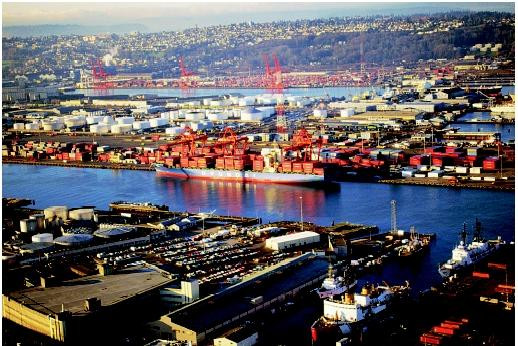(VLR) High on the agenda of President Barack Obama’s state visit to Japan last April was to have a meaningful, bilateral discussion with Prime Minister Shinzo Abe on the Trans-Pacific Partnership (TPP), the free-trade agreement that’s now under negotiation between the U.S., Japan, and 10 other nations that could give shippers greater access to Japan’s market.

Bruce Stokes, director of global economic attitudes at the Pew Research Center, says that U.S. and Japanese negotiators working on the TPP are currently stymied by “politically-charged” issues. Furthermore, their resolution may require tough decisions that only their political masters can make.
And while such a breakthrough was not achieved during Obama’s visit, Stokes maintains that Americans are broadly supportive of foreign investment, the TPP, and especially more trade with Japan.
“There is a widespread perception in much of Asia—in part a by-product of the trade wars between Washington and Tokyo in the 1980s—that Americans are protectionist,” says Stokes. “If this was ever the case, it has not been so for some time, at least in principle. Two-thirds of Americans say U.S. involvement in the global economy is a good thing, and about three-quarters say growing trade and business ties between the U.S. and other countries are desirable, up from 53 percent just four years ago.”
Japan is currently the fourth-largest U.S. trading partner. And in a new Pew Research Center survey, conducted this spring, 74 percent of Americans said increased trade with Japan is needed, up from 60 percent in 2010.
These supporters include 79 percent of Republicans; 78 percent of people ages 18 to 29; 72 percent of Democrats, and 73 percent of Americans age 50 or older. Better-educated Americans, those with at least a college education, are particularly supportive of more commerce with Japan, at 84 percent. By comparison, only 51 percent of the public said it would like to increase trade with China.
Americans are also supportive of more foreign companies setting up operations in the U.S., something Japanese businesses, especially those in the auto sector, have been doing extensively since the 1980s.
In the Pew Research Center survey, 62 percent of the public said that such investments would mostly help the U.S. economy. Notably, there are no significant partisan differences in such support for foreign investment between Democrats, Republicans, and independents, including adherents of the Tea Party.
The TPP itself has majority support in the U.S. More than half (55 percent) of the public said that the TPP will be good for the country. This includes 59 percent of Democrats and 56 percent of independents, but only 49 percent of Republicans. Young people are much more likely than their elders to back a free-trade agreement with Asia-Pacific nations—65 percent compared with 49 percent.
“This broad American support for international commerce, for increased trade with Japan, and for the TPP suggests the political climate in Washington for congressional consideration of an eventual TPP deal may not be as negative as it might appear given the current negotiating deadlock over details of the trade agreement,” observes Stokes.
This does not mean, however, that Americans have dismissed their reservations about trade pacts. In the 2010 Pew Research Center survey, 55 percent of Americans said that free-trade agreements lead to job losses, and 45 percent said that they push down wages. Back then, only 31 percent said that they bought economists’ arguments that such deals lower prices for consumers.
So, the TPP could face more resistance if it ever comes up for approval by Congress.
“But first, Washington and Tokyo need to see if they can resolve their differences,” says Stokes. “The trade plan may involve 12 nations, but Japan and the U.S. are by far the two biggest economies in the negotiations. And a deal is unlikely if Abe and Obama cannot make some accommodations.”
Stokes says that in principle, the American public generally thinks a deal would be a good idea, “but the details will matter.”